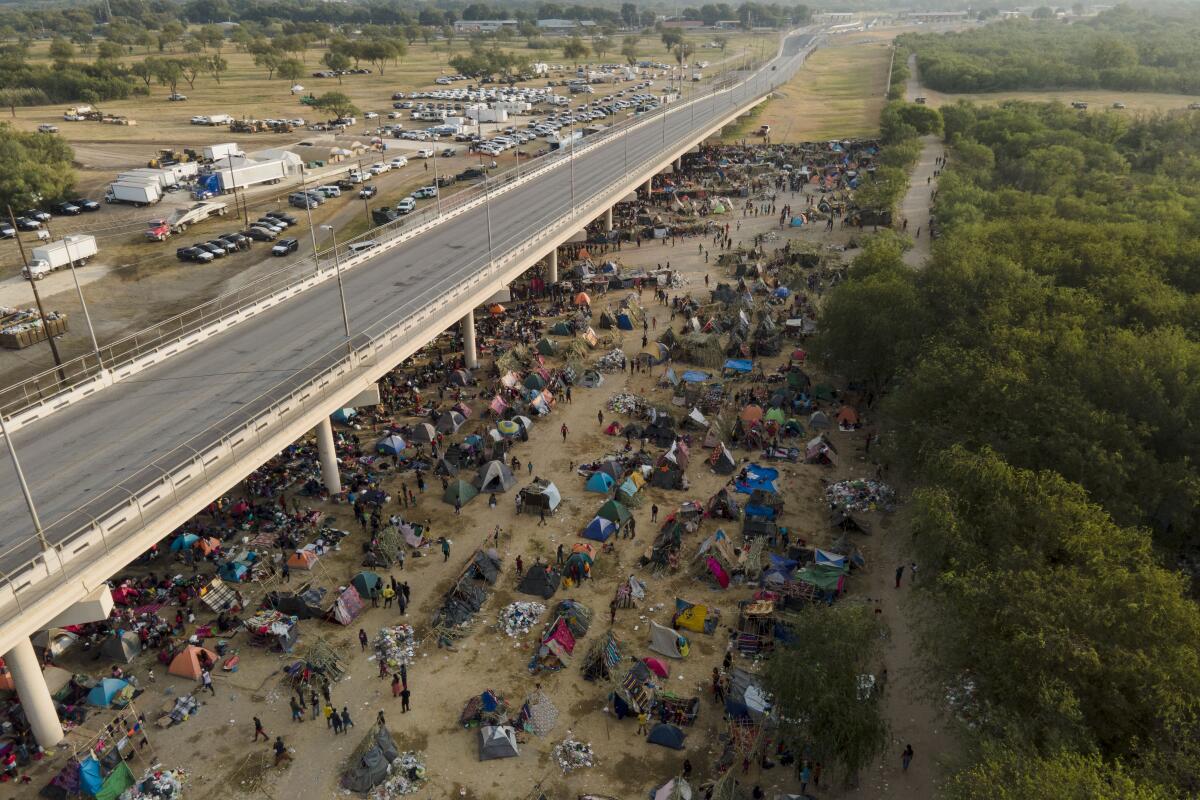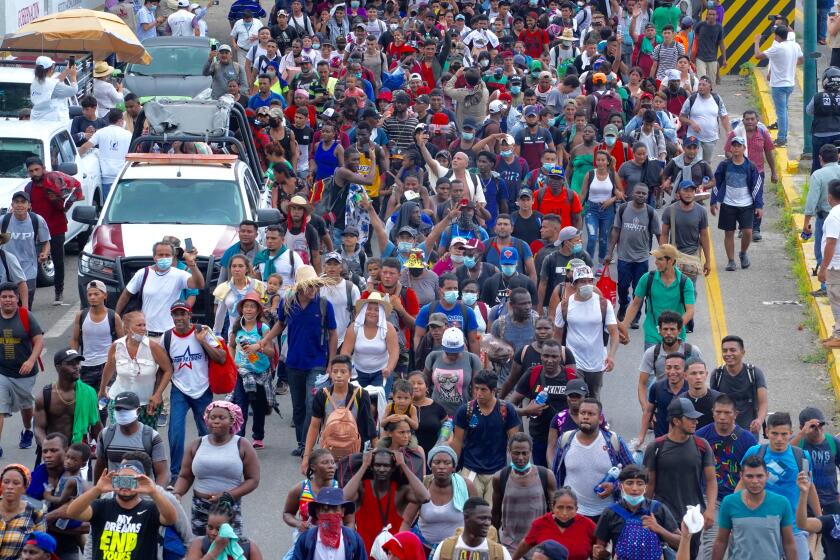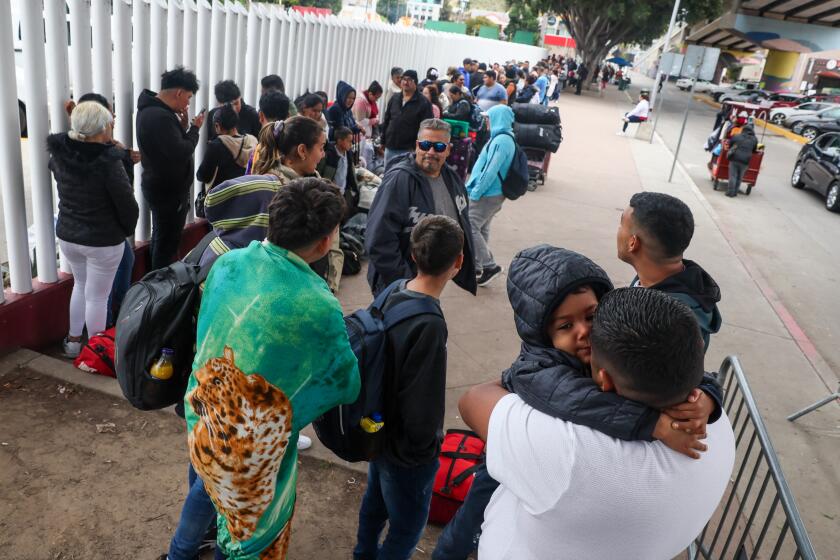Civil and human rights leaders decry treatment of Haitian migrants at southern border

Civil and human rights groups on Wednesday criticized the White House’s immigration policies for inflicting “cruelty on Black, Brown and Indigenous immigrant communities,” according to a letter sent by the organizations to President Biden.
“We fear that commitments made on the campaign trail ... are being shredded before our eyes,” said the letter, which was signed by the leaders of more than 30 civil and human rights groups, including Sherrilyn Ifill, the president and director-counsel of the NAACP Legal Defense and Educational Fund; Anthony Romero, executive director of the American Civil Liberties Union; and Franciscka Lucien, executive director of the Institute for Justice and Democracy in Haiti.
The letter arrived at the White House amid sharp bipartisan criticism over the Biden administration’s response to an encampment of thousands of mostly Haitian migrants in Del Rio, Texas, just across the border from Mexico. Homeland Security Secretary Alejandro Mayorkas, who toured the area early this week, told Congress on Tuesday that the conditions in Del Rio were a “human tragedy” that officials were racing to address.
U.S. officials had by Tuesday reduced the size of the encampment to under 10,000 people from a high of as many as 15,000 last week, Mayorkas said. “We continue to move individuals from Del Rio to other processing centers to facilitate their repatriation,” he said, while the government has “increased the number of repatriation flights to Haiti and to other third countries.”
In their letter, the civil and human rights activists wrote that the repatriation flights confirmed “our fears that your Administration, like its predecessors, is utilizing harsh and illegal policies to attempt to deter people, particularly Black migrants, from seeking refuge at the border. Your Administration has promised to uphold tenets of racial equity, but is unleashing immigration policies infused with anti-Black racism.”
There are so many Haitians in Tapachula that the Mexican city can seem like a slice of the Caribbean. Under U.S. pressure, Mexican authorities won’t let them leave.
The letter did not address photos and videos that emerged earlier this week that appeared to show Border Patrol agents on horseback in Del Rio charging migrants as they crossed the Rio Grande. In some of the photos, it appeared the agents were waiving or whipping reins at the migrants or in the air. Democrats have been particularly vocal in condemning the agents’ actions.
Vice President Kamala Harris said on Tuesday the images were “horrible” and that “human beings should never be treated that way.”
“And I’m deeply troubled about it,” Harris said.
On Wednesday, Domestic Policy Advisor Susan Rice, senior advisor Cedric Richmond and other officials met with nine members of the Congressional Black Caucus, including Barbara Lee (D-Oakland), who tweeted that during the meeting she “made it emphatically clear that those seeking asylum are not to be struck down by those on horses and that other legal rights must be protected.”
Biden is facing critiques from lawmakers in both political parties for his handling of the situation in Del Rio and at the border more broadly. Authorities have been apprehending historically high levels of migrants, U.S. statistics show. In August, migrants were stopped 208,000 times at the Southern border, up from 50,000 that same month last year and 62,700 in August 2019.
Senate Minority Leader Mitch McConnell said in a statement on Wednesday that the administration’s policies had directly resulted in the border becoming a “nightmare.”
The influx of Haitians at the border resulted from a complex set of circumstances that can be traced to a major earthquake in 2010 that badly damaged the Caribbean nation. In the months after the earthquake, Haitians fled their country, many settling in South America. Following political instability in recent months, Haitians have moved north, seeking to enter the United States.
Mayorkas told Congress the situation resulted from “a very rapid increase, really unprecedented increase, of individuals, primarily Haitian nationals, crossing in one discrete portion of the border” in Del Rio.
More to Read
Get the L.A. Times Politics newsletter
Deeply reported insights into legislation, politics and policy from Sacramento, Washington and beyond. In your inbox three times per week.
You may occasionally receive promotional content from the Los Angeles Times.








